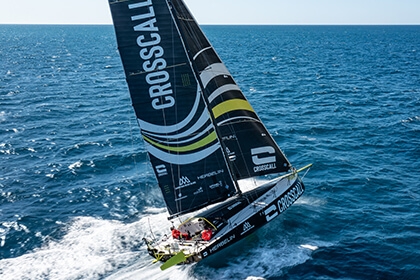
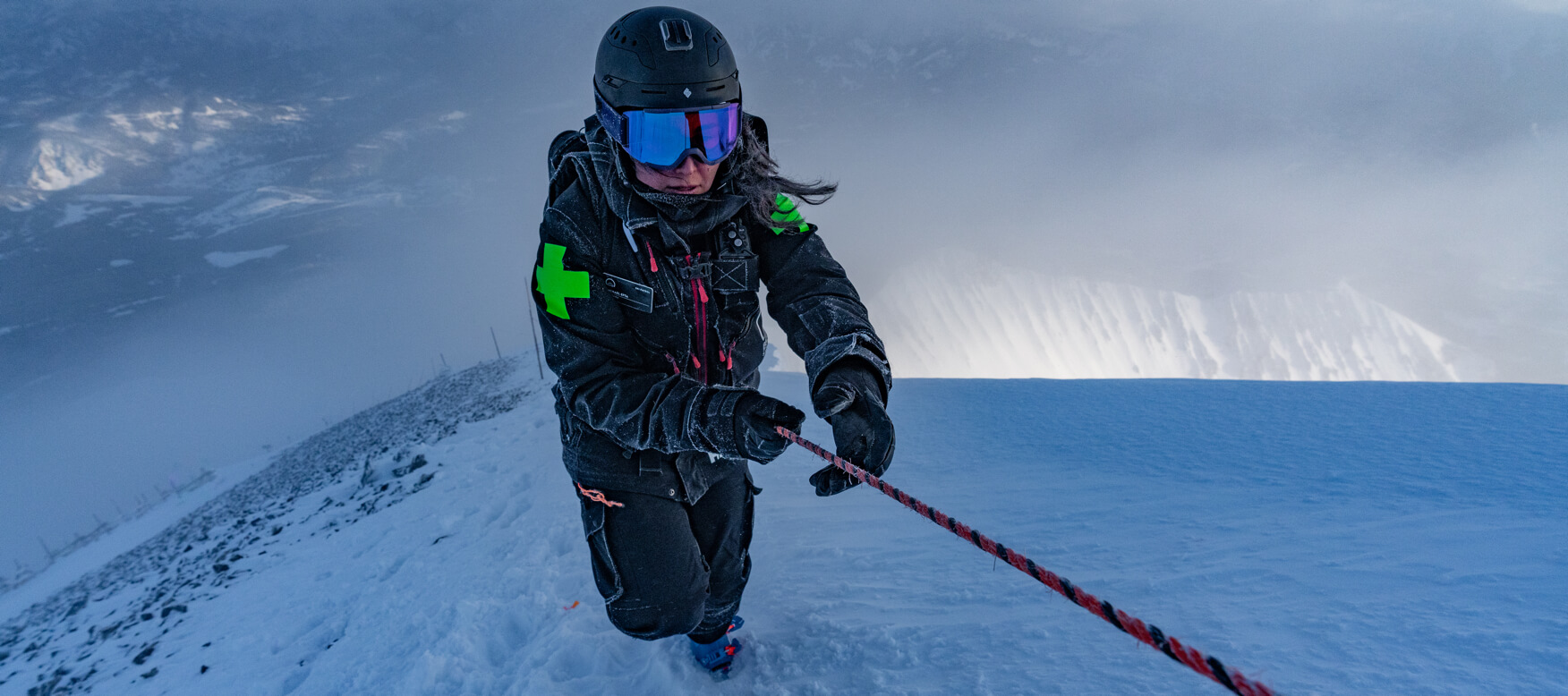
With safety comes empowerment
Big Sky ski patroller Rachael Efta on Training & Teamwork
October 24, 2022
8 min read
We sat down with Big Sky ski patroller Rachael Efta to learn more about the inner workings of the ski patrol world and how they manage to stay on top of their game for long, cold days on end.
Where do you work and what's your job?
I work on the summit of Lone Mountain as the summit supervisor. It is my job to make sure that we have the resources that we need to open up and that we can run a proper rescue. I also decide if we have the proper infrastructure to open and maintain the terrain given the conditions on the hill and whether we have the staff to do it. Then as the day goes on, I run the logistics of the medicals and the equipment necessary to get them there.
How many patrollers are on staff?
We are the largest professional ski patrol in the lower 48, so we have, I believe, 116 paid professional ski patrollers at this time, and we also have a staff of 70 volunteers to keep it rolling. On any given day, we have 45 to 58 ski patrollers on the mountain.
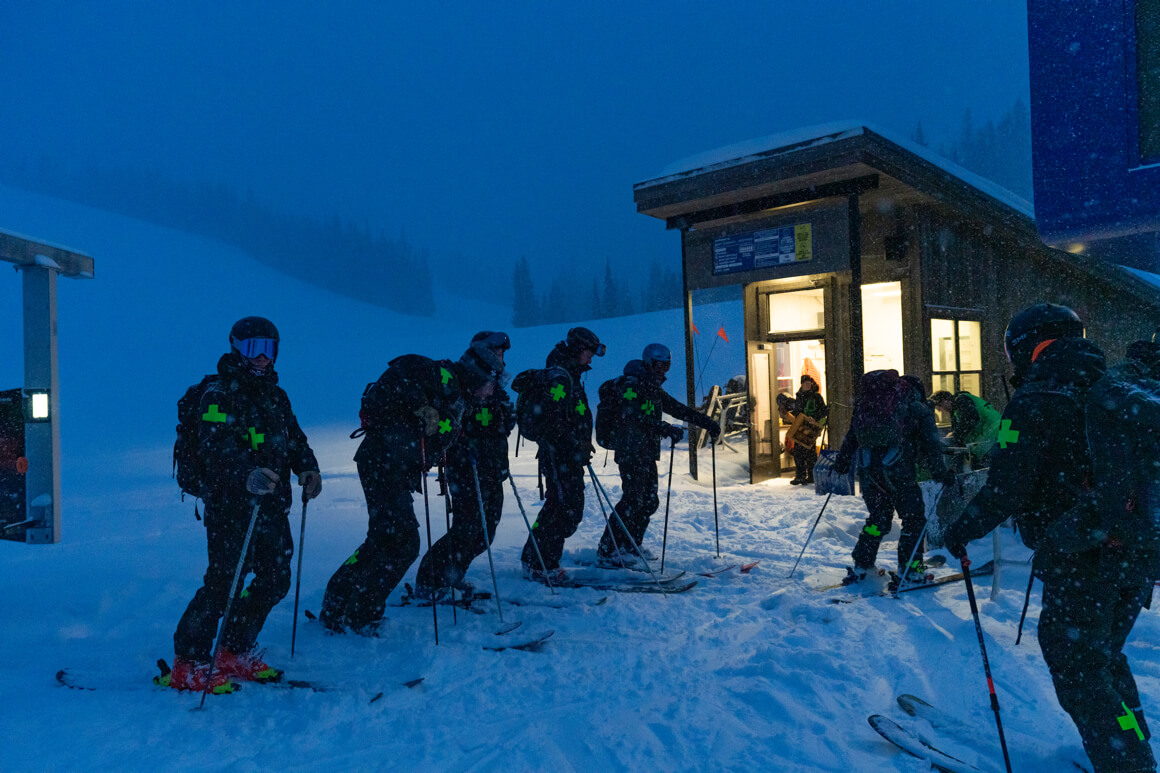
Is there a lot of pressure each day to open everything on the mountain as soon as possible?
Absolutely, there is pressure to open up everything on the mountain on time every day, but we will never sacrifice our safety, and we will never sacrifice the safety of our guests to open the mountain early. To do our jobs efficiently and safely, we move with purpose every morning to get people on the hill. We are motivated by bringing joy to the skiers as soon as possible for as long as we can in a day.
What skills or knowledge do you have to develop to become a ski patroller?
I think that to become a ski patroller, everyone has this kind of preconceived notion or this checklist in their heads they may already know, and that could be to get your Pro Level 1, which means that you have spent a certain amount of time in avalanche terrain and you've gotten your Recreational Avalanche 1 and 2. You most certainly need your EMT before becoming a ski patroller at Big Sky Resort. However, I think that the most important prerequisite is having a good attitude and a good heart and being an agreeable person. We can teach you the kind of skill set that you need to work on a mountain like Lone Mountain and to be in the alpine and to aid and rescue; those are things we can teach, but we are unable to teach someone how to show up and be honest and kind and care for their teammates and care for the quality of work that they are doing and have good follow-through. The biggest part of being a ski patroller is wanting to show up and be the best person you can be every day—those are the people we're looking for.
The biggest part of being a ski patroller is wanting to show up and be the best person you can be every day—those are the people we're looking for.
What don’t people know about the upkeep and maintenance of the mountain?
I think that something people assume about ski patrollers in maintaining the mountain is that when things are closed, we’re all skiing private powder stash, and I don't think that could be further from the truth. When things are not open, we manage a nightmare of a travel zone, side-stepping and clambering through rocks and making our way through ice. Sometimes when you're not up there, it means that we're just up there suffering to prepare it for you to have fun.
Could you describe a typical training day with your team and how you prepare for the various things you will encounter?
The beginning of season starts for patrol in November with a month of solid training. We do a medical refresher where we get hands-on with all our equipment. Then we practice scenarios with outside teams like the Big Sky fire department, who come in and help us out, or with local paramedics, to dial in our skills and ensure we have mentorship.
For training, we have a huge checklist for everything we need to accomplish to level up, and then we must maintain that training for years to move up to certain levels. So whenever we're not actively ski patrolling or not actively building infrastructure to open up terrain, we are hands-on training—we're doing technical rescue training, medical training throughout the season, chair evacuation training, and more recently, also working on our psychological first aid training for our first responder team to make sure that we are mentally healthy as well.
What does it mean to have your team’s back and vice versa?
What it means to me to have my team’s back is to show up every day for them prepared. To take care of myself so I can show up and listen to them and help them with their needs. I am showing up transparent, vulnerable, and honest, trying to create an environment where they can do the same.
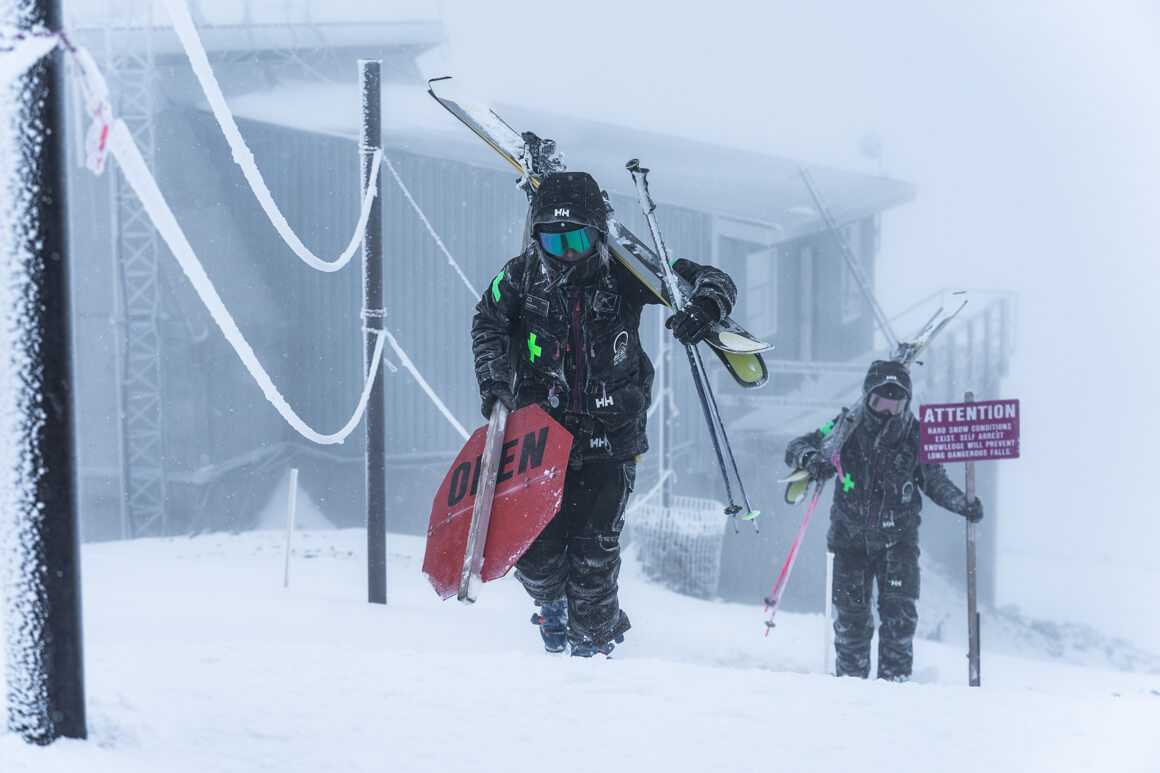
How has the mental side of ski patrolling changed? Are people more open to sharing and being honest nowadays?
Since I've been a ski patroller, I've watched this incredible evolution of my teammates in their emotional skills and intelligence, which comes from hardship experienced on the hill. With the ski industry getting larger and more people on the hill, we see more injuries and trauma. When you experience that trauma as a collective group, it messes with your psyche, and you start to notice your coworkers managing their own stress.
In our culture, we have all decided that it's much better for everyone to be vulnerable around one another and be honest. We've also experienced a heavy-hitting tragedy within our team that has affected us deeper than anyone could imagine. So really checking in with one another and being honest and ensuring that we have the resources that we need for one another to make it through another day has become astronomically important to all of us. We're a more loving and kind team for it, and I'm proud of all the work that everyone has put into themselves to show up and be there for one another.
Something that needs to be addressed in the outdoor community is that the kinds of people attracted to seasonal work often have a higher serotonin ceiling and a higher need to chase dopamine than the average person. This can lead to catastrophic crashes, so maintaining openness with your coworkers and the people who love you is important. There are some people, and most likely a large number of people in the outdoor industry, who struggle with depression, and life can be harder for them. I think it is important to create an open environment with your team to talk about that so everyone knows where you're at.
How do you manage to stay calm in high-pressure scenarios?
Experience plays a part in staying calm in high-pressure or high-consequence scenarios. When something bad happens, and it's your job to respond to it, you fall back on your automatic response and experience. To do so, you need to train over and over again to be able to trigger that response on command, which means you do the training in the most high-pressure way possible. Sometimes for us, that means you're going to get watched by ten of your peers while you try to find two beacons in the snow, or you're going to do a hasty drill in front of more experienced people. They're often the greatest mentors on the hill, which can simulate the pressure you feel with a patient who needs you.
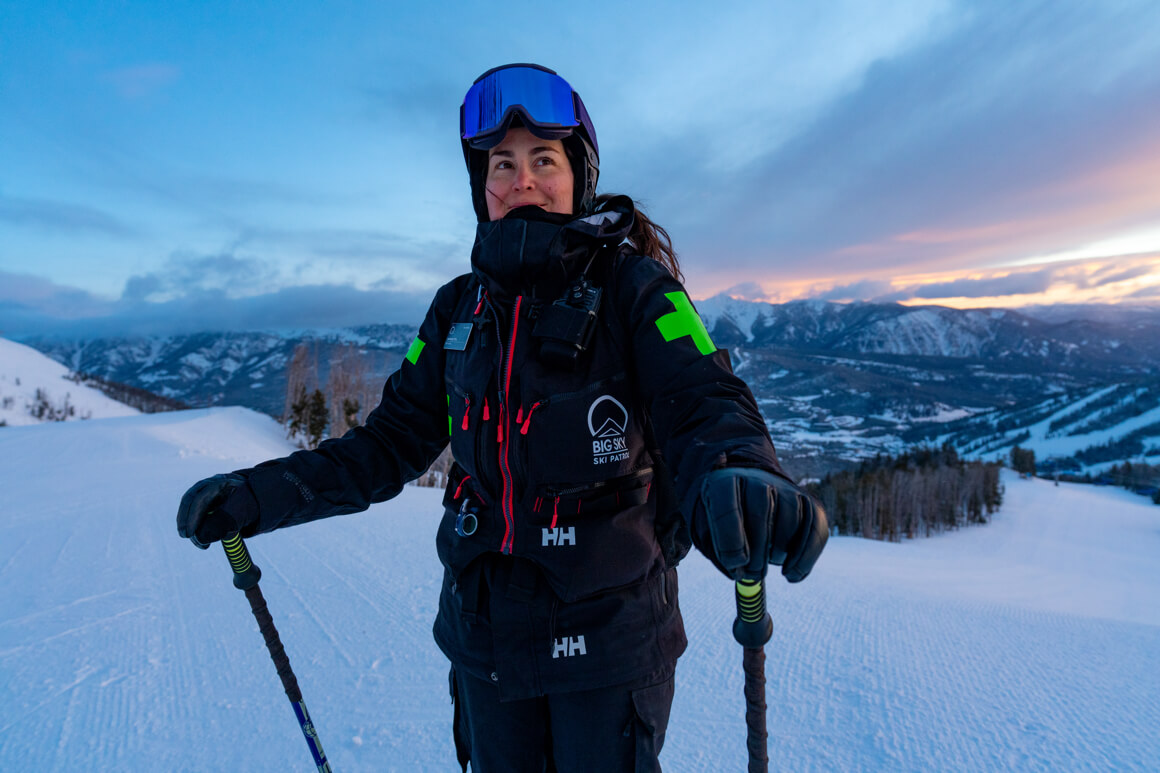
How does it feel to help someone in need?
Helping someone in need is a double-edged sword. I think that it depends on the condition of the person that I've helped out. It's not always an automatic win and a high-five if someone you know is left somewhere in rough shape. I'm not celebrating until I know that my teammates are okay and they will have a good outcome.I think that one of the most rewarding parts of my job is skiing laps down a beginner green run and teaching people how to stand up when they fall and showing them how to track their hands, and empowering them to be able to stand up without kicking their skis off. It's one of the most rewarding things I can do in my day—giving someone that small win that makes them love skiing even more and makes it easier for them to love it.
It's one of the most rewarding things I can do in my day—giving someone that small win that makes them love skiing even more and makes it easier for them to love it.
Is it the same every time a call comes in over the radio?
It's an interesting thing to try to describe, it's almost like the noise around you completely stops, and for me, there's this hyper-focus, especially if it's something a little bit more serious. I begin to connect the dots, and it turns into this matrix in my mind of all the logistics that need to unfold for this person to have the best outcome. It's a feeling of stillness and total focus in listening and thinking through the possibility in front of us.
Do you ever feel alone when you're on a call or have made it through an event and delivered a person to the medics, or does the team immediately fall back on you?
I think that there is a difference between feeling alone and feeling lonely. I can certainly feel alone sometimes, but I'm never lonely at work. I think that sometimes there are experiences that I need to sit with and be alone with for a while to be able to express what I am going through with the team. Still, I know that as soon as I make myself available to share my experience after a tough call, I have a huge bucket of resources around me and people who want nothing more than to help out their teammates. So I never feel isolated, but I almost need the time to wrap my head around things and step off by myself to feel them and process them so that I can put a name to the things that I've experienced before someone else does it for me, if that makes sense?
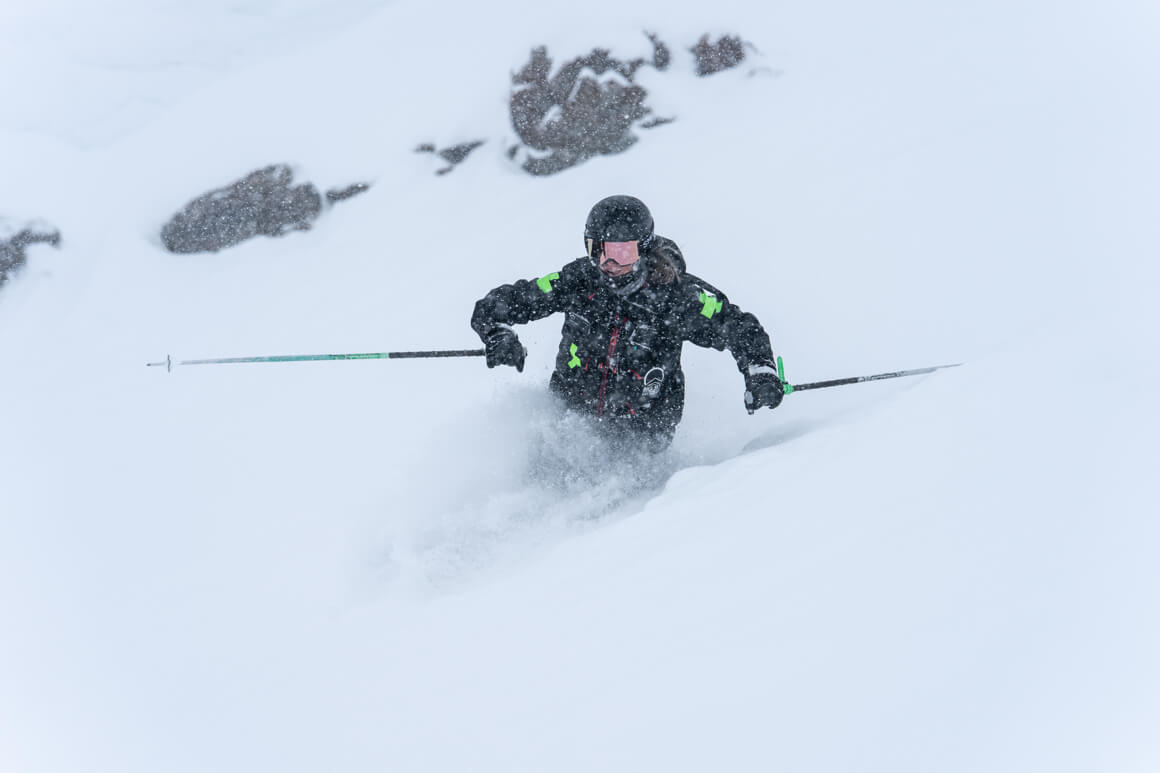
Do you love ski patrolling?
I totally found my jam. I love ski patrolling, and with love also comes the pain— it's an uncomfortable job putting on ski boots every day and wearing them for over 40 hours a week, but what it boils down to is I can't imagine my life without it. It's not even because of the skiing, it's not because of working outside, it's not because of the beautiful place that I live, it's because I cannot imagine my life without this group of people that I've met and these bonds that I get to be a part of every single day here.
more from the stay alive feel alive series

the spell of the mountain: Meet Big Sky Ski Patroller Rachael Efta
For ski patroller Rachael Efta, the love of the mountain is beyond dispute, it’s a place she can truly feel alive.
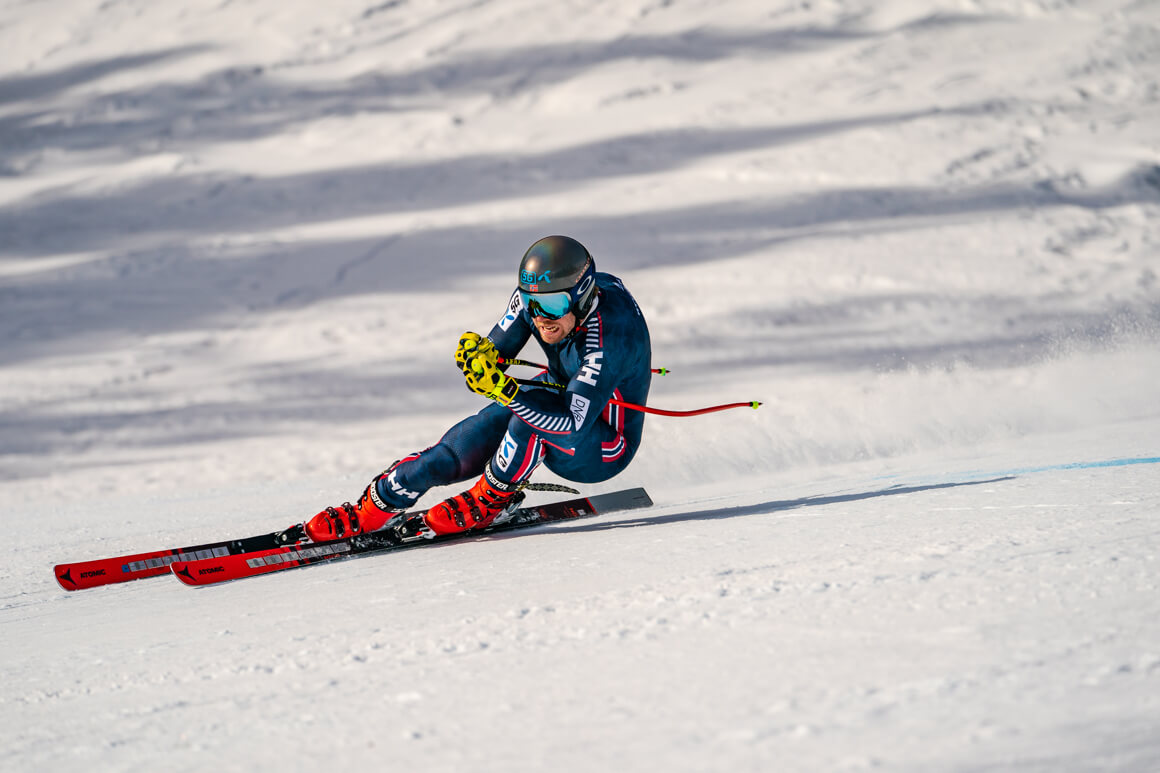
Becoming a champion: Aleksander Aamodt Kilde and The Norwegian Alpine Ski Team
Even if ski racing is an individual sport, teamwork is essential for Aleksander Aamodt Kilde's success.
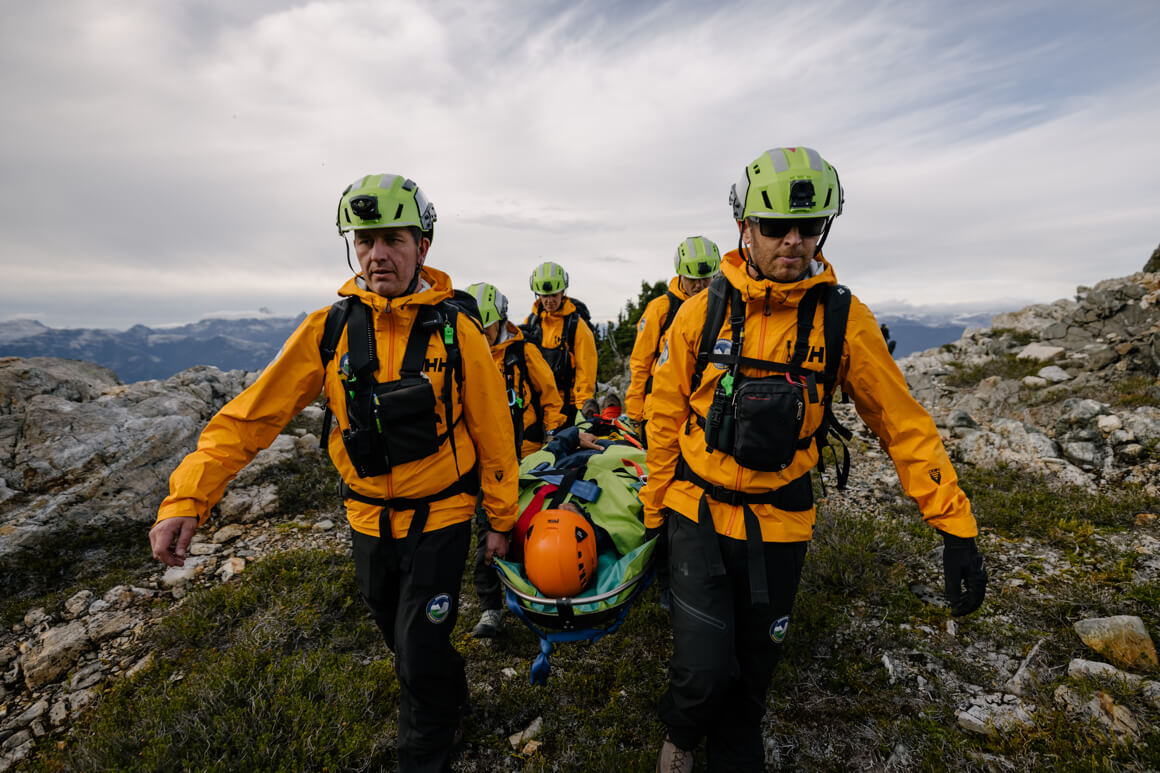
With Training Comes Pride: Meet the Volunteer Heroes of the Mountains
From Squamish to Tromsø, these two search and rescue professionals have made it their mission to help others.

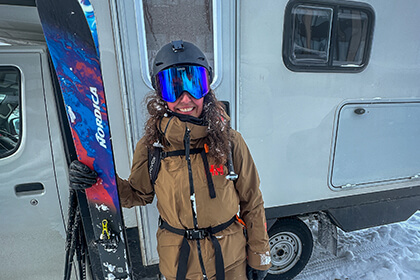
October 21, 2025 10 min read
How to plan your ski trip to Japan
Skiing Japan with Nat Segal: Hokkaido RV adventure, volcano tours, and how to thrive through a dry spell.
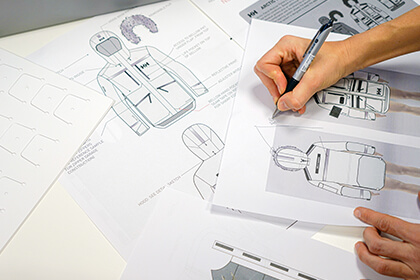
September 29, 2025 4 min read
Behind the design: The Arctic Patrol Down Parka
An inside look at how Helly Hansen designed the Arctic Patrol Down Parka with insights from Arctic scientists for extreme conditions.